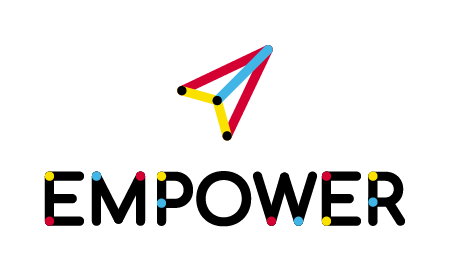EMPOWER will focus on education for children with neurodevelopmental disorders (NDDs). Children with NDDs can experience difficulties with language and speech, motor skills, behaviour, memory, learning, or other neurological functions. Technological solutions that can respond to such individual needs have the potential to both improve the quality and inclusiveness of the education of these children and support teachers in carrying out their educational vocation. From a technological perspective, the challenge is not only to deliver the resulting educational program but also to do so accurately and to the benefit of the child. From an ethical perspective, several challenges come together in the trade-off between the potential educational benefits and the necessity to process relevant information regarding the children via measurements and algorithms that shape the educational program. In the proposed AI regulations of the EU (Artificial Intelligence Act, EC/2021), this is a high- risk endeavour. Together, this application domain is therefore a challenging one in that it unites sensitive cases of the obstacles one is likely to encounter in digitizing education. Addressing these challenges is therefore also an opportunity to shed more light on the future of technology and AI in education as the ability to address these challenges in their extreme form will lead to insights that are relevant more generally.
EMPOWER is a multidisciplinary pursuit, at the interface between education, psychology, special education, technology, and software development. The EMPOWER consortium possesses the required multidisciplinary expertise to carry out the project, ranging from software development and wearable devices integration, cognitive systems architectures, assistive technologies for children with NDDs, psychological assessment and intervention, to ethical issues in technology for education.
The core objective of EMPOWER is to develop and deploy a unique learning platform for personalized education for children with NDDs that goes beyond current approaches and paradigms, and empowers teachers to support children with NDDs in reducing their emotional and behavioural problems. By using a game-based approach, children will improve their learning and emotional skills, better integrate into the educational system, and therefore improve their quality of life. All of this can lead to better inclusion in society and the job market. This platform will, through the nature of the requirements of this use case, require the development of new educational tools that can be used in education more widely, thereby allowing the assessment of these tools to inform future endeavours in digitizing education, including identification of limitations and challenges, whether these are technological, ethical, or legal (e.g. concerning the proposed EU AI regulation).
In this project we will combine the expertise of the EMPOWER consortium on systems design, eye tracker and wearable sensor usage, and algorithm design. Moreover, we will consider a methodological approach considering reliability, engagement, and effectiveness as parameters for evidence and testing the evidence-based model of technology developing for educational settings; equipping teachers, educational leaders and learners with the skills necessary for the use of technology by providing the necessary training to be used to their full potential.
An evidence-based model of how technology can be developed and tested in educational settings
The project outcomes inform future educational public policies
Knowledge regarding the importance of executive functions and emotion regulation strategies in the educational process
A non-intrusive support system that enables an increased understanding awareness of cognitive and emotional skills that underlie children’s school performance
Testing the impact of the technological tool in reducing emotional and behavioural problems in children with NDD
Smart training for teachers for sharing good practices regarding the use of emerging technologies
| Research Centre | Research Group | Role in Project | Begin Date | End Date |
|---|---|---|---|---|
| BRU-Iscte | Organizational Behaviour and Human Resources Group | Partner | 2022-10-01 | 2025-09-30 |
| Institution | Country | Role in Project | Begin Date | End Date |
|---|---|---|---|---|
| Universitat de València (UVEG) | Spain | Leader | 2022-10-01 | 2025-09-30 |
| STICHTING RADBOUD UNIVERSITEIT (RU) | Netherlands | Partner | 2022-10-01 | 2025-09-30 |
| UNIVERSITATEA BABES BOLYAI (UBB) | Romania | Partner | 2022-10-01 | 2025-09-30 |
| UNIVERSITATEA TEHNICA CLUJ-NAPOCA (UTC) | Romania | Partner | 2022-10-01 | 2025-09-30 |
| HOGSKULEN PA VESTLANDET (HVL) | Norway | Partner | 2022-10-01 | 2025-09-30 |
| AUTISME-EUROPE AISBL (AUTISME-EUROPE AISBL) | Belgium | Partner | 2022-10-01 | 2025-09-30 |
| Instituto de Engenharia de Sistemas e Computadores:Investigação e Desenvolvimento em Lisboa (INESC-ID) | Portugal | Partner | 2022-10-01 | 2025-09-30 |
| ITDATA TELECOM (ITC) | Romania | Partner | 2022-10-01 | 2025-09-30 |
| Name | Affiliation | Role in Project | Begin Date | End Date |
|---|---|---|---|---|
| Aristides I. Ferreira | Professor Associado (com Agregação) (DRHCO); Integrated Researcher (BRU-Iscte); | Local Coordinator | 2022-10-01 | 2025-09-30 |
| Sara Lopes | Professora Auxiliar Convidada (DRHCO); Associate Researcher (BRU-Iscte); | Researcher | 2023-03-01 | 2025-09-30 |
| Reference/Code | Funding DOI | Funding Type | Funding Program | Funding Amount (Global) | Funding Amount (Local) | Begin Date | End Date |
|---|---|---|---|---|---|---|---|
| 101060918 | -- | Contract | European Commission - Horizon Europe | 3629496 | 256024 | 2022-10-01 | 2025-09-30 |
| Year | Publication Type | Full Reference |
|---|---|---|
| 2025 | Scientific journal paper | Ferreira, P., David, C., Costescu, C., Vera, L., Herrera, G., Lopes, S....Trindade, F. (2025). Neurodevelopmental disorders: Assessing and training working memory. BMC Psychology. 13 (1) |
No records found.
No records found.
No records found.
No records found.
With the objective to increase the research activity directed towards the achievement of the United Nations 2030 Sustainable Development Goals, the possibility of associating scientific projects with the Sustainable Development Goals is now available in Ciência_Iscte. These are the Sustainable Development Goals identified for this project. For more detailed information on the Sustainable Development Goals, click here.

 Português
Português





